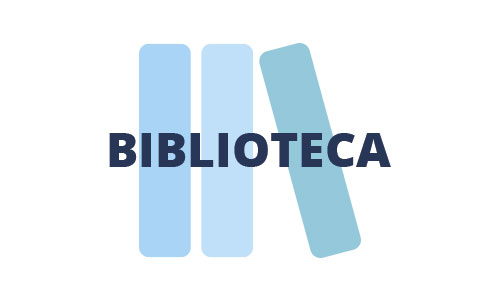Diego Romero Hinojosa

Diego Romero Hinojosa
Investigador Ramón y Cajal
Tel: 952134274 E-mail: diego_romero@uma.es
Despacho: Ciencias
BREVE CURRÍCULUM:
Diego Romero (Málaga, 1976) es licenciado en Ciencias Biológicas por la Universidad de Málaga (1999) y doctor por la misma Universidad (2006). Realizó una estancia postdoctoral de cuatro años en el laboratorio del profesor Roberto Kolter en el Molecular Genetics and Microbiology Department en la Harvard Medical School (Boston, USA). En Enero de 2012 se reincorpora al Departamento de Microbiología de la Facultad de Ciencias de la Universidad de Málaga con un contrato Ramón y Cajal. Desde el año 2018 es Profesor Titular de Universidad y desarrolla su actividad investigadora en el estudio de las propiedades químicas y mecánicas de la matriz extracelular bacteriana y su implicación en la ecología de bacterias en el contexto de la protección y producción sostenible de cultivos vegetales, en el Instituto de Hortofruticultura Subtropical y Mediterránea “La Mayora”, un centro mixto Universidad de Málaga-CSIC.
Recibió el premio de doctorado por la rama de Biología y el premio Jaime Ferrán concedido por la sociedad española de Microbología (2015).
Para conocer más acerca de las líneas de investigación vigentes, relación de publicaciones y personal del grupo de investigación, visita nuestra página: https://www.bacbiolab.com
-------------------------------------------------------------------------------------------------------------------------
DOCENCIA EN:
Microbiología Industrial. 2º ciclo Licenciatura Biología
Microbiología I. 3º curso Grado Biología
Biotecnología Microbiana. 3º curso Grado Bioquímica
Microbiología y Parasitología Clínicas. 3º curso Grado Medicina
Patologías Microbianas de Plantas. Máster en Biología Celular y Molecular
-------------------------------------------------------------------------------------------------------------------------
INVESTIGACIÓN EN:
Proyectos y contratos de investigación vigentes:
Interacción del patógeno de humanos Bacillus cereus con hortalizas y frutas: estudios moleculares para el diseño de nuevas estrategias de control.
Ministerio de Economía y Competitividad. Programa Nacional de Proyectos de Investigación Fundamental no Orientada del VI plan nacional (Plan Nacional, AGL2012-31968).
INVESTIGADOR PRINCIPAL: Dr. Diego Romero
Biological control under examination. A molecular view of a tripartite Plant-Microbe interaction. Ministerio de Economía y Competitividad. Programa Ramón y Cajal (RYC-2011-080605)
INVESTIGADOR PRINCIPAL: Dr. Diego Romero
Genomic strategies oriented to the biological control of economically relevant cultures in Andalusia (Estrategias genómicas dirigidas al control biológico de enfermedades de cultivos relevantes en Andalucía).
PAIDI. Consejería de Economía, Innovación y Ciencia. Junta de Andalucía. Incentivos a proyectos de excelencia (P10-AGR5797).
INVESTIGADOR PRINCIPAL: Dr Cayo Ramos
Profundizando en la biología y el control de las dos enfermedades críticas del cultivo del mango en Andalucía.
Ent. Financiadora: Junta de Andalucía, Proyectos de Excelencia (P12-AGR-1473)
Investigador responsable: Dr. A. de Vicente
-------------------------------------------------------------------------------------------------------------------------
PREMIOS:
-------------------------------------------------------------------------------------------------------------------------
PUBLICACIONES:
Lòpez-Ruiz FJ, Pérez-García D, Fernández-Ortuño D, Romero D, Garcia E, de Vicente A, Brown JKM and Torés JA. 2010. Sensitivities to DMI fungicides in populations of Podosphaera fusca in South central Spain. Pest Management Science, 66: 801-808.
Pérez-García A, Romero D, Zeriouh H, and de Vicente A. 2011. Biological control of phytopathogenic fungi by aerobic endospore-formers. Aerobic, Endospore-Forming Soil Bacteria, 27: 157-180.
Pérez-García A, Romero D and de Vicente A. 2011. Plant protection and growth stimulation by microorganisms: biotechnological applications of Bacilli in agriculture. Current Opinion in Biotechnology, 22: 187-193.
Romero D, Aguilar C, Losick R and Kolter R. 2010. Amyloid fibers provide structural integrity to Bacillus subtilis biofilms. PNAS, 107: 2230-2234.
Kolodkin-Gal I, Romero D, Shugeng C, Clardy J, Kolter R and Losick R. 2010. D-Aminoacids trigger biofilm disassembly. SCIENCE, 328: 627-629.
Romero D, Vlamakis H, Losick R and Kolter R. 2011. An accessory protein required for anchoring and assembly of amyloid fibers in Bacillus subtilis biofilms. Molecular Microbiology, 80 (5): 1155-1168.
Romero D and Kolter R. 2011. biofilms disassembly agents make it to market? Trends in Microbiology,19 (7): 304-306.
Romero D, Traxler MF, Lopez D and Kolter R. 2011. Antibiotics as signal molecules. Chemical Reviews, 111 (9): 5492-5505.
Zeriouh H, Romero D, García-Gutiérrez L, Cazorla FM, de Vicente A and Pérez-García A.
2011. The iturin-like lipopeptides are essential components in the biological control arsenal of Bacillus subtilis against bacterial diseases of cucurbits. Molecular Plant-Microbe Interactions, 24: 1540-1552
García-Gutiérrez L, Romero D, Zeriouh H, Cazorla FM, de Vicente A and Pérez-García A. 2012. Isolation and selection of plant growth-promoting rhizobacteria as inducers of systemic resistance in melon. Plant and Soil, 358: 193-204.
Martínez-Gil M, Romero D, Kolter R and Espinosa-Urgel, M. 2012. Calcium causes multimerization of the large adhesin LapF and modulates biofilm formation by Pseudomonas putida. Journal of Bacteriology, 194: 6782-6789.
García-Gutiérrez L, Zeriouh H, Romero D, Cubero J, de Vicente A and Pérez-García A. 2013. The antagonistic strain Bacillus subtilis UMAF6639 also confers protection to melon plants against cucurbit powdery mildew by activation of jasmonate- and salicylic-dependent defence responses. Microbial Biotechnology, 6: 264-274.
Romero D, Sanabria-Valentín E, Vlamakis H, and Kolter R. 2013. Biofilm inhibitors that target amyloid proteins. Chemistry and Biology, 20: 1-9.
Chai I, Romero D, Kayatekin C, Akabayov B, Vlamakis H, Losick R and Kolter R. 2013. Isolation, characterization, and self-aggregation of a structured bacterial amyloid precursor. Journal of Biological Chemistry, 288: 17559-17568.
González Sánchez MA, de Vicente A, Pérez-García A, Pérez-Jiménez R, Romero D, Cazorla FM. 2013. Evaluation of the effectiveness of biocontrol bacteria against avocado white root rot occurring under commercial greenhouse plant production conditions. Biological Control, 67: 94-100.
Romero D. Bacterial determinants for the social behaviour of Bacillus subtilis. Research in Microbiology, 164: 788-798.
eriouh H, de Vicente A, Pérez-García A and Romero D. 2013. Surfactin triggers biofilm formation of Bacillus subtilis in melon phylloplane and contributes to the biocontrol activity. Environmental Microbiology. Ahead of print. doi: 10.1111/1462-2920.12271.
Romero D, Vlamakis H, Losick R and Kolter R. 2014. Functional analysis of the accessory protein TapA in Bacillus subtilis amyloid fiber assembly. Journal of Bacteriology. Ahead of print.
-------------------------------------------------------------------------------------------------------------------------







